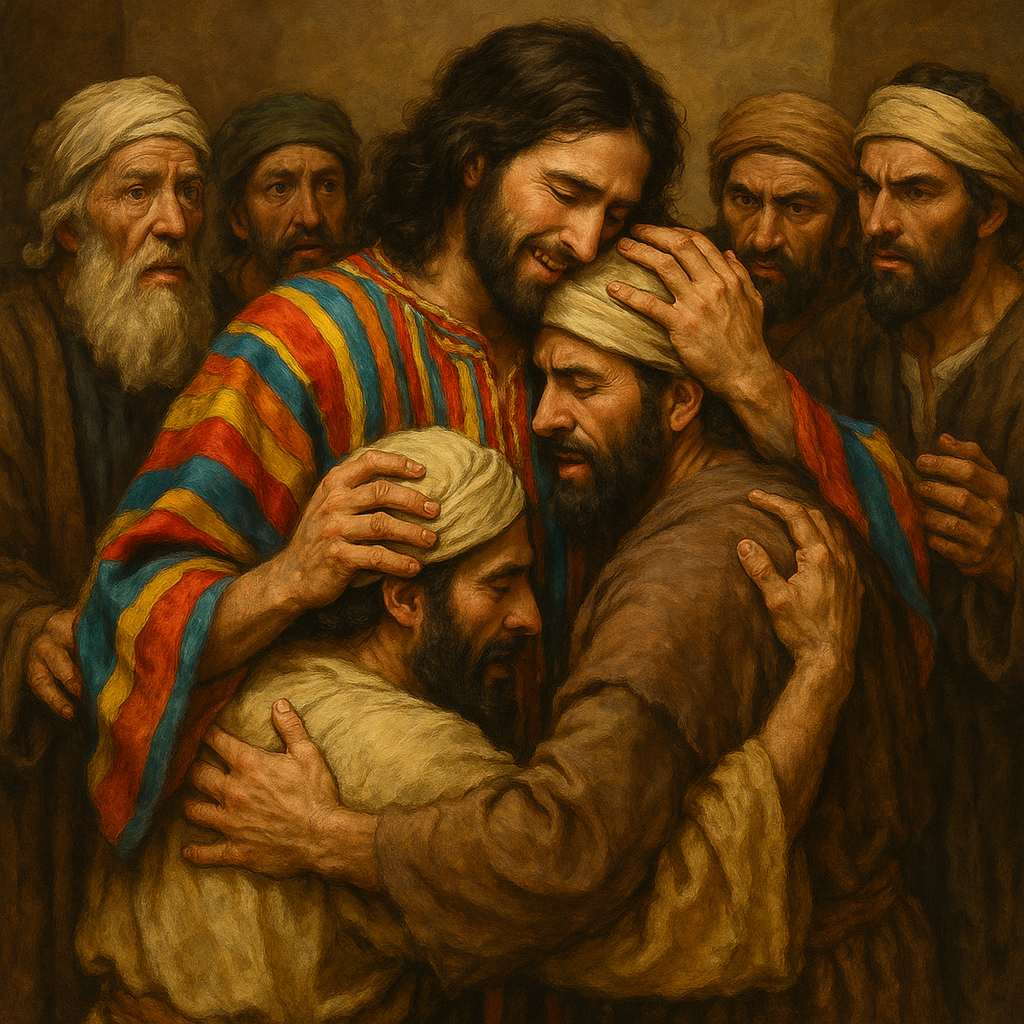
Joseph, son of Jacob and Rachel, emerges from the pages of Genesis not only as a survivor of betrayal and hardship but as a symbol of divine providence and redemptive purpose. His journey from favored son to slave, prisoner, and ultimately, savior of nations illustrates the unseen hand of God at work through suffering and humility. While many are familiar with his colorful coat and rise to power in Egypt, lesser-known elements of his life bring out the deeper beauty and significance of his character.
Joseph the Dreamer: Beyond the Well-Known Dreams
Joseph’s dreams and his ability to interpret them play a crucial role in his life, as well as in the survival of his family and Egypt. While his dreams of sheaves and celestial bodies bowing to him are well-known, his interpretation of the dreams of Pharaoh’s cupbearer and baker is equally significant. These interpretations not only revealed divine insight but became the very means by which Joseph was elevated from prison to the highest court in the land. His gift, given by God, opened the way for his destiny to unfold.
Joseph and Potipar’s Wife: A Test of Character
Joseph’s encounter with Potipar’s wife, who falsely accused him of misconduct, is often highlighted as a moment of moral integrity. But it also demonstrates his unwavering faith in God. Faced with repeated temptation and the risk of losing his position, Joseph chose righteousness, which ultimately led to unjust imprisonment. Even in the dungeon, however, his faith did not falter. This period of suffering refined his character and prepared him for the weight of future authority.
Joseph’s Egyptian Name and Wife
Upon rising to power, Pharaoh gave Joseph an Egyptian name, Zaphenath-paneah, and a wife, Asenath, the daughter of Potiphera, priest of On (Genesis 41:45). These details mark Joseph’s deep assimilation into Egyptian culture and political structure. His new name, possibly meaning “God speaks and he lives,” highlighted his prophetic role. His marriage into a priestly household further established his legitimacy in the Egyptian elite.
Some might expect condemnation for such a union—after all, Potiphera was a priest of a pagan deity. Yet the biblical text offers no such rebuke. Unlike other biblical figures who compromised their faith through foreign marriages, such as Solomon, Joseph remained faithful to Yahweh. He consistently credited God for his success, named his sons in ways that reflected divine providence, and clung to God’s promises.
His marriage to Asenath, arranged by Pharaoh, served a broader purpose: the preservation of life during famine and the fulfillment of God’s plan. Far from condemnation, the silence of the text implies approval within the context of God’s sovereign orchestration.
Joseph’s Sons: Ephraim and Manasseh
Joseph’s sons, Ephraim and Manasseh, were born in Egypt and were later adopted by Jacob as his own (Genesis 48:5). When Jacob blessed them, he deliberately crossed his hands, placing his right hand on the younger Ephraim and his left on Manasseh. Joseph tried to correct him, but Jacob insisted that Ephraim would be greater.
This was not a casual or symbolic reversal. In previous instances—Isaac over Ishmael, Jacob over Esau—the firstborn was passed over for specific reasons. Isaac was the child of promise. Esau despised his birthright. In this case, there is no recorded failure in Manasseh. The reversal seems purely prophetic, a choice of God’s will rather than man’s expectations. Ephraim would go on to become the dominant tribe in the northern kingdom of Israel. This pattern affirms that God’s favor is rooted in divine purpose, not human convention.
Joseph’s Forgiveness and the Providence of God
One of the most powerful scenes in Joseph’s life is his reconciliation with his brothers. After years of separation, famine drove them to Egypt, unknowingly placing them at the mercy of the very brother they betrayed. Instead of seeking revenge, Joseph wept, embraced them, and declared, “You meant evil against me, but God meant it for good, to bring it about that many people should be kept alive” (Genesis 50:20). In this moment, Joseph revealed the core truth of his life—faith in God’s providence. His forgiveness prefigured the greater forgiveness that would come through Christ.
Joseph’s Final Resting Place
Before his death, Joseph made his family swear that when God brought them out of Egypt, they would carry his bones with them (Genesis 50:25). Centuries later, Moses honored that oath (Exodus 13:19), and Joshua buried Joseph in Shechem (Joshua 24:32).
Though he lived most of his life as an Egyptian ruler, Joseph’s final request demonstrated his unwavering loyalty to the covenant and his belief in God’s promises to Abraham, Isaac, and Jacob. His heart remained with the people of God.
Joseph as a Foreshadowing of Christ
In biblical theology, a prophetic type is a real person, event, or institution in the Old Testament that prefigures and points forward to a greater fulfillment in the New Testament—often in the person and work of Jesus Christ. These types are not accidental parallels but part of God’s intentional design to weave the story of redemption across generations.
Joseph’s life points forward to the Messiah in striking ways. Rejected by his own, falsely accused, and raised up to save the nations, he serves as a type of Christ. Joseph forgives those who wronged him, provides bread for the world during famine, and becomes a mediator between his family and the throne. Like Christ, Joseph is both suffering servant and exalted savior—an early echo of the Gospel embedded in Genesis.
Conclusion
Joseph’s life is a story of providence, perseverance, and divine purpose. While his rise to power is dramatic, the spiritual journey behind it reveals the true greatness of his character. He trusted God in the pit, the prison, and the palace. He forgave when he could have condemned. He lived faithfully in a pagan land without compromising his devotion to Yahweh. And in death, he looked forward to the fulfillment of God’s promises. Joseph stands not only as a patriarch of Israel but as a preview of the Redeemer to come.
Discussion Questions
- How do the lesser-known elements of Joseph’s life, such as his Egyptian name and wife, add depth to our understanding of his journey and identity?
- In what ways does Jacob’s blessing of Joseph’s sons reflect the biblical theme of God choosing according to His purpose rather than birth order?
- How does Joseph’s forgiveness of his brothers reflect divine providence and point forward to Christ?
- What does Joseph’s assimilation into Egypt—and yet loyalty to Israel—teach us about living faithfully in foreign or secular cultures?
- How does Joseph’s life encourage believers to trust God in the face of unjust suffering or long periods of waiting?
Want to Know More?
- “Joseph: A Man of Integrity and Forgiveness” by Charles R. Swindoll
A practical and devotional examination of Joseph’s character, emphasizing lessons in perseverance, faith, and forgiveness. - “From Paradise to the Promised Land: An Introduction to the Pentateuch” by T. Desmond Alexander
A scholarly yet accessible resource that explores Genesis in its larger Pentateuchal and theological framework. - The IVP Bible Background Commentary: Old Testament by John H. Walton, Victor H. Matthews, and Mark W. Chavalas
Provides historical and cultural background for each passage, helping clarify Joseph’s Egyptian setting, his marriage, and court role. - Genesis: A Commentary by Bruce K. Waltke
A theologically rich, verse-by-verse commentary that gives insight into narrative structure and theological themes, including Joseph as a type of Christ. - The Message of Genesis 12–50 by Joyce G. Baldwin
This commentary from The Bible Speaks Today series explores covenant themes and the spiritual depth of Joseph’s life and family narrative.





